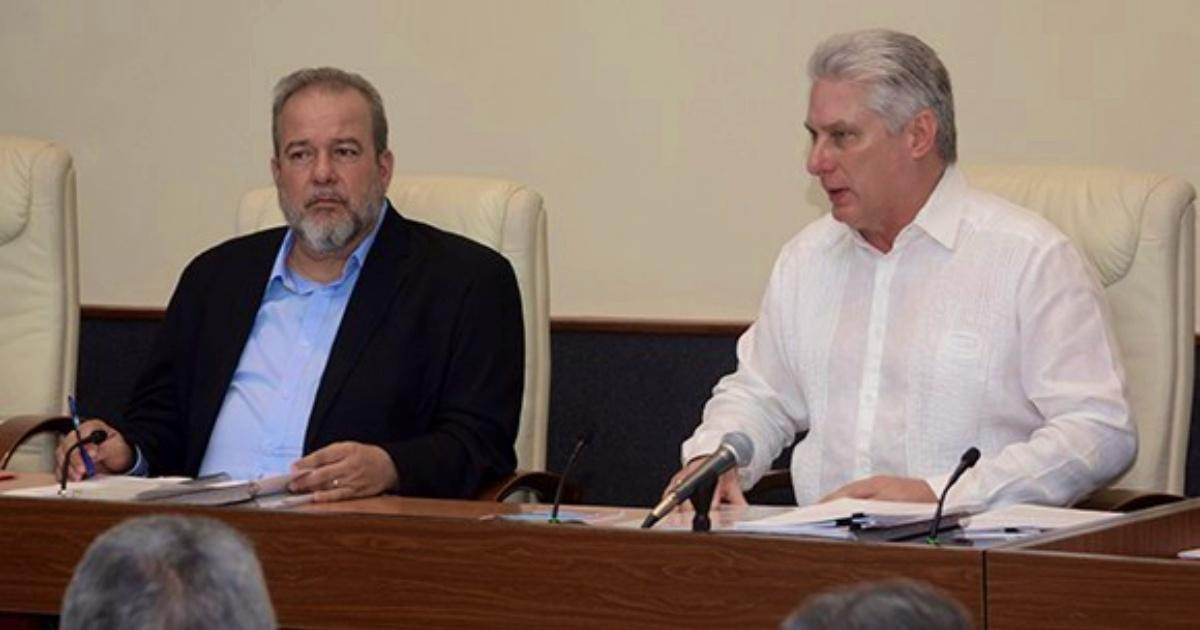
Given the recentrecognition of the Cuban government about the failure of banking and the official exchange rate policy, Cuban citizens have not remained silent. In a publication ofCiberCuba News, many expressed their opinions, highlighting a common clamor for a change in the system, beyond superficial economic adjustments.
Raul Macias was one of the most direct, stating that"The only thing they have to change is the system that doesn't work", receiving a notable support of 117 likes from other users.Mileidys Heredia harshly criticized the management of the economy, pointing to the"Banking, MSMEs, too many leaders in each province and few results" as examples of poor management, reflecting the frustration of many.
In the words ofJose Hernandez, the current situation demands more than superficial recognitions:"The failure is total. The most sensible thing is that they leave power, lose themselves and change the system. It makes no sense to make a people suffer and starve.".
Jesus Legs, for his part, pointed out the inconsistencies in the government's exchange rate policy:"The cup exchange rate and the USD continue to rise to enormous prices, the commander said that this revolution is by the poor and for the poor, now the bourgeoisie has changed".
Arian Sanchez He emphasized the importance of national production and the inefficiency of the current system:"As long as there is no national production, the supply is insufficient, and furthermore, the little that enters the country is 'imported' in currencies with which the people are not paid, any implementation in any economic field is destined to fail.".
Fernando Martinez Mr. highlights the disconnection between the concerns of politicians and the needs of the people, pointing out that the only thing that seems to matter to them is"fill their bellies and those of their families", a criticism that resonates with the perception of corruption and disinterest in collective well-being.
Discontent extends to social apathy, as expressedElvis Lobato, who regrets that the people do not react to the continuous failures:"And the most beautiful thing, the people don't even flinch... at anything... much more failures will come". This resignation seems to be one more obstacle towards any type of change or improvement.
Where Does It Go From criticizes the ineffectiveness of the country's leaders, suggesting that recognition of errors is not enough:"We don't want them to admit mistakes. We want them to stop making them", a demand for concrete actions and real improvements rather than mere admissions of failure.
The irony and skepticism towards the government's ability to improve are evident in the comment ofYuriesky Darcourt Castellano, who expresses sarcastic surprise at government failures:"I stayed like that, (surprised emoji), because it's so rare for something to go wrong for them", highlighting a perception of chronic incompetence.
Zuzi Martin addresses the problem from a practical perspective, pointing out the lack of infrastructure and basic conditions to implement economic changes:"Logically, before starting something, you must first create the foundations", emphasizing the need to prepare the ground before launching new policies.
The demand for real solutions instead of empty recognitions is reinforced byOnesio Esteban De León Gutierrez andJulito Ireteyekun, who agree that the essential thing is to find practical solutions to the problems that afflict the people:"We do nothing to make them recognize that and other things... We need SOLUTIONS" and"Don't recognize it, look for a solution", respectively.
Frustration at the continuity of errors and their impacts on daily life is expressed byIracema Camacho Borrego: "They are always making mistakes one after another and the people suffer the consequences", which highlights the human cost of government management.
Reynier Hidalgo reflects on the inevitability of the consequences of bad government, with a philosophical perspective:"Reason is the daughter of Time, not of authority... Time dictates its sentence", suggesting that the final judgment on these failures will be given by history rather than by current authorities.
Finally,Estom Yony criticizes the government's lack of real recognition of the problems, describing a disconnect between the elites and the people:"What they recognize, they do not recognize anything. They are the government, but at the same time they are a caste that is taking full advantage of the naivety or stupidity of a people", summarizing the feelings of many about the management of the crisis in Cuba.
These opinions are just a sample of the general discontent with the economic policies of thecuban government, who seem to move further and further away from the reality and needs of their people.
The government's economic management, which tried to present itself as a solution to the country's critical situation, has been a clear reflection of the disconnection between the ruling elites and the true needs of the population. The recent confessions of failure by senior officials are but the tip of the iceberg ofa system that has demonstrated its inability to provide a decent life for its citizens. Instead of constructive dialogue and meaningful reforms, the regime continues to rely on superficial adjustments that do not address the root of the problem: an outdated economic and political model that represses individual initiative and strangles any possibility of progress.
Instead of assuming responsibilities and looking for new ways that truly benefit the Cuban people,the government insists on palliative measures that only perpetuate the state of hopelessness and frustration. The insistence on maintaining a failed system and the resistance to implementing profound changesThey suggest a lack of interest in the well-being of the people and a desire to retain power at the expense of the freedom and prosperity of the nation. The clamor for real and effective change is increasingly stronger, and the patience of Cubans is increasingly scarce.
What do you think?
COMMENTFiled in: